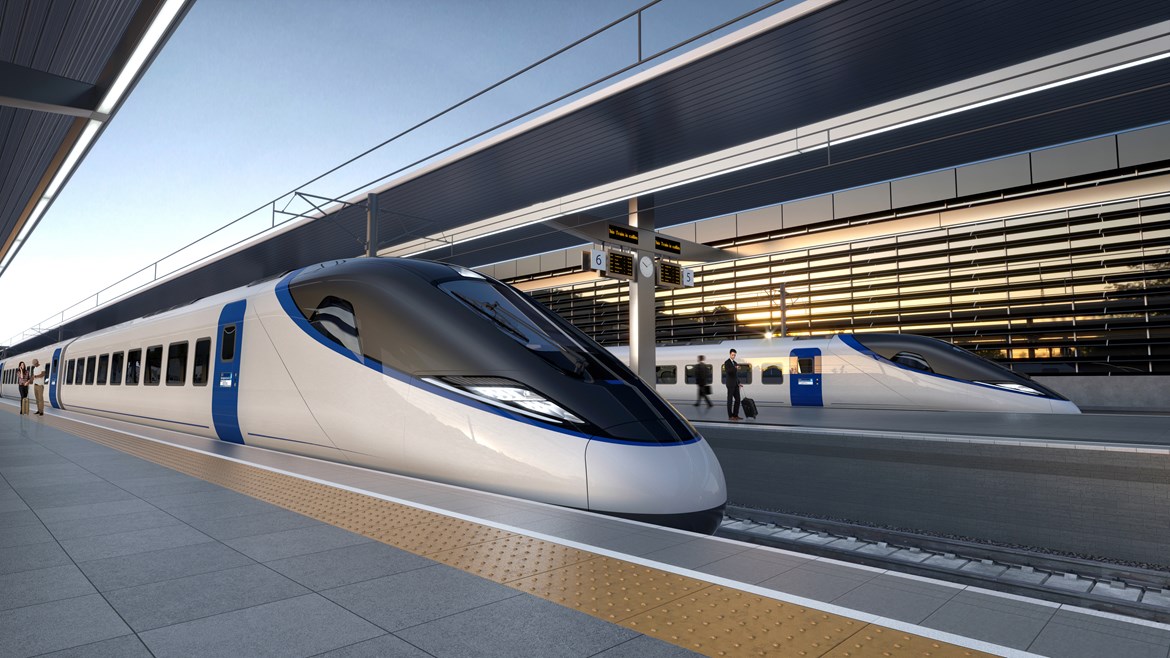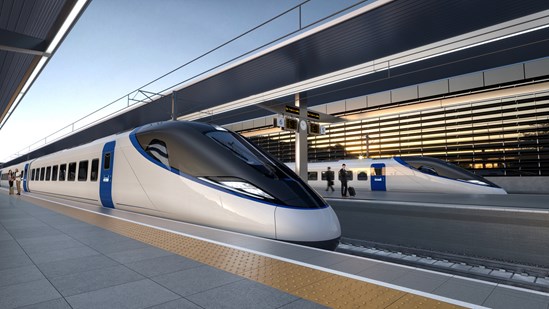HS2 is preparing to enter a critical new phase with the development of state-of-the-art rail systems that will allow passengers to enjoy some of the world’s most reliable intercity train services.
As 2023 draws to a close, HS2 Ltd is putting the finishing touches to a huge package of work that will eventually allow for the physical operation of the new high-speed railway between London and the West Midlands.
In 2024, the government-owned company will let around £5 billion-worth of contracts to oversee building of the tracks, power, signalling, overhead lines and the railway's new network control centre. They will be constructed to the highest standards to help create a new benchmark for speed and punctuality, ensuring passengers can rely on the service, even in the face of extreme weather.
Contracts will also cover a new telecom system that will allow travellers to experience uninterrupted phones calls and streaming along the entire route, including in tunnels.
The move marks a crucial turning point for the project, starting to bring the working railway to life, seven years after parliament officially gave HS2 the go-ahead. To date, skills and resources have largely focused on the huge feats of civil engineering – tunnels, bridges, embankments and cuttings – being constructed along the 140-mile route.
HS2 remains by far the UK’s biggest infrastructure project even with the cancellation of the second phase north of Birmingham.
It has celebrated a host of hugely impressive construction milestones in the last 12 months as the project reaches peak construction. This includes:
- The start of work on the first of 14 new platforms at the vast Old Oak Common rail hub in West London – the UK’s largest newly-built station;
- The completion of HS2’s first twin-bore tunnel beneath Long Itchington Wood in Warwickshire;
- The launch of the first of two tunnel boring machines used to dig the Bromford tunnel which will carry the line into Birmingham;
- Crossing the half-way point in construction of Colne Valley viaduct – the UK’s longest rail bridge at 2.1 miles when complete.
- For the first time, it was also confirmed that HS2’s workforce had passed the 30,000-mark, with tens of thousands of more British jobs supported through the programme’s wider supply chain.
Sir Jon Thompson, HS2 Ltd’s Executive Chair, said: “This is a project of phenomenal scale and ambition and we’re immensely proud of the progress made between London and the West Midlands throughout 2023. There will be no let-up in delivery in 2024.
“The transition in our focus towards railway systems represents another significant milestone and will edge us ever closer towards bringing this transformational project to life.”
Once complete, HS2 will almost halve the journey time between London Euston and Birmingham, with trains running further north via the existing rail network. It will also free up space on the congested southern section of the West Coast Main Line, with the potential to double capacity between London and the West Midlands, as well as fuelling economic growth around its new high-speed stations.
Early in the new year, the project will mark a series of construction milestones. This includes the expected formal start of work on the new Curzon Street high-speed station in central Birmingham and breakthrough of the first machine being used to bore the Chilterns tunnel – the longest on the route at 10 miles.
HS2 Ltd is also expecting to award contracts for the rail systems that will dictate the operation of the line when it opens between 2029 and 2033.
Eleven contracts are already out to tender and are expected to be awarded in 2024, unlocking more opportunities for the UK’s construction, engineering and rail sector.
Three contracts will be for the design, logistics and installation of the track system – as well as a maintenance depot at Calvert in Buckinghamshire – that will carry HS2 services at speeds of up to 225mph.
Another will cover the high-tech signalling system that feeds information directly into the cab – as an alternative to lineside signals – allowing for faster and more frequent services to maximise space on the line.
A further contract will be awarded for the high-voltage power system used by the line, delivering zero-carbon electricity from the National Grid. Another winning bidder will be selected to construct HS2’s “nerve centre” at Washwood Heath, Birmingham – a 30-hectare site housing the project’s rolling stock maintenance depot and network control centre.
Physical construction of many parts of HS2’s rail system along the route is expected to begin from 2026/7 when main civil engineering work reaches its conclusion.

